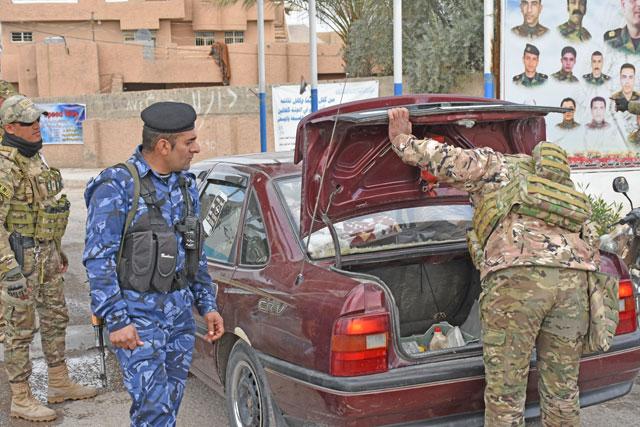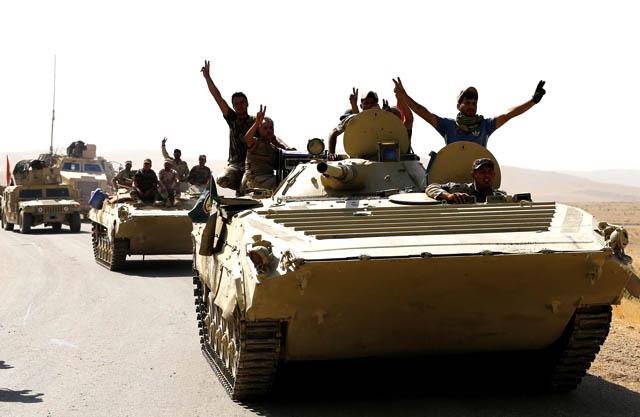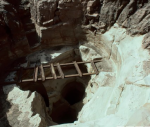You are here
Slow recovery for Iraq’s Mosul after Daesh ouster
By AFP - Sep 09,2017 - Last updated at Sep 09,2017

Iraqi mechanics work in a garage in east Mosul on Wednesday, as they repair vehicles that were damaged during the offensive to retake Iraq’s second-largest city from Daesh (AFP photo)
MOSUL, Iraq — Two months since Iraqi forces recaptured Mosul from the Daesh terror group extremists, Mohammed Seddiq's bullet-riddled car is still off the road and his fruit and vegetable shop has yet to reopen.
Much of Iraq's second city lies in ruins and many businesses are still at a standstill, even those that produced the famous muslin cotton fabric for which Mosul was renowned before the extremists seized it in 2014.
Three years ago, Seddiq, 32, owned two cars, but the extremists set fire to one and the other was damaged by mortar shells and bullets.
With all the garages still closed in his west Mosul neighbourhood, he sought out a mechanic in the industrial zone in the city's east which was less severely damaged by fighting.
He expects the repairs to cost $1,000. In the meantime he will have to pay for taxis using his savings because "the state has announced that it will reimburse for cars and houses, but up to now nothing" has been paid.
Many of the cars awaiting repairs at Ghezwan Aqil's workshop were damaged when bulldozer-driving extremists used them to form barricades against advancing Iraqi troops.
Their owners cannot afford to buy new cars and are prepared to wait one or two months for the repairs instead.
Aqil says that sometimes he will reduce a customer's bill by half depending on their circumstances.
Even after Mosul’s recapture life is uncertain and insecurity is rife.
“There have been many burglaries,” says taxi driver Mohammed Salem.
“And people have been detained by unidentified groups. No one knows what happened to them,” the 33-year-old adds.
“There are regular problems between the various armed forces, especially the paramilitary units,” Hossam Eddine Al Abbar, a member of the provincial council of Nineveh, of which Mosul is the capital, tells AFP.
The presence of the Hashed Al Shaabi (Popular Mobilisation) paramilitary units, dominated by Iran-backed Shiite militias, has stirred tensions in the Sunni-majority city.
Without genuine reconciliation between communities, there are fears that the country could once again descend into violence.
“The best way to control [armed groups] is to integrate them into the regular forces that enjoy much more trust among citizens than paramilitary forces,” Abbar said.
Omar Al Allaf, a local tribal dignitary who oversees Hashed Al Shaabi units, rejects the idea.
His men will never join the police because “they are infiltrated by terrorists”, he says.
In 2014, as Daesh staged a rapid advance across northern Iraq, police and military personnel abandoned their posts to the extremists with barely a fight.
That allowed the group to establish its “caliphate” across parts of Syria and a third of Iraq’s territory including Mosul.
Today, many police in the Iraqi city are demanding their reinstatement, but the process of identification and investigation of each one takes time, Abbar said.
“More than 13,000 policemen have yet to return to their jobs despite our requests to the authorities in Baghdad,” he added.
Mosul’s famed Old City was reduced to rubble by the fighting and the iconic leaning minaret of its Al Nuri Mosque, the image of which adorns the 10,000 dinar note, left in ruins.
For many of Mosul’s displaced, it is impossible to envisage a return to a city where, in addition to finding nothing left of their previous life, they risk losing more.
In the past year, a million Iraqis have fled their homes in Nineveh province.
Related Articles
HATRA, Iraq — Iraqi forces on Thursday retook the town of Hatra, southwest of Mosul, on the third day of an operation that saw them wr
MOSUL, Iraq — Barely a month after Baghdad declared victory over the Daesh terror group, the extremists could still recapture areas of Iraq,
BAGHDAD — A car bomb exploded in a market in the Iraqi capital's Shiite-majority district of Sadr City on Monday, killing 11 people and woun

















